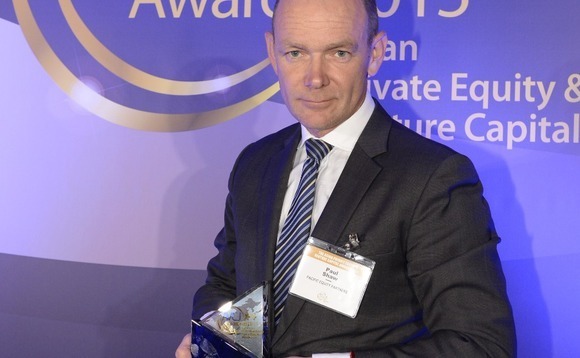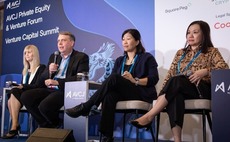
AVCJ Awards 2015: Exit of the Year - Large Cap: Spotless Group

Pacific Equity Partners took about 12 months to reel in cleaning and catering contractor Spotless, but swift improvements resulted in a 2.4x return within the two years
Spotless was a classic underperforming market leader. Founded by Ian McMullin in 1946 as a single dry cleaning shop in Melbourne, the company became Australia's largest cleaning and catering contractor. Despite listing on the domestic bourse in 1961, Spotless was essentially family-controlled until the early 2000s. When the McMullin and his cohorts stepped back, performance began to slip.
"The management team has added a lot of duplicative corporate overhead leading to a massive deterioration in margins," notes Geoff Hutchinson, a managing director with Pacific Equity Partners (PEP). "In our view, the only thing wrong with the business was the way it was being run. If we could change the management and return to some of the older practices margins could be restored."
This proved to be the case, with EBITDA margins improving from 6.2% in 2012, when PEP bought the business, to 11.2% for the 2015 financial year. Having returned Spotless to public ownership in May 2014, the private equity firm followed up a partial exit at the IPO with three share sales between December 2014 and August of this year. The investment generated an IRR of 55% and a multiple of 2.4x.
Hard won
Buying Spotless was no easy matter, however. PEP carried out substantial pre-investment planning, spending 12 months on due diligence and constructing a detailed value creation plan.
The sticking point was the board, which opposed a deal. The private equity firm finally prevailed in April 2012 with a bid of A$720 million (then $752 million) which translated into an enterprise valuation of A$1.1 billion, after securing options over shares representing a sizeable minority stake in the business. PEP's fourth fund took a 72.5% stake in the business, co-investors were allocated 20.6%, and the balance sat with company management.
"Spotless is the biggest services provider in Australia by some distance - it has some very large contracts that only 1-2 other providers have the capability to deliver," Hutchinson says, explaining why PEP pursued the business. "There were strong long-term outsourcing trends and a good underlying base. But the business was run with too much cost in it, and most of that was head office, not the contracts."
Spotless employs approximately 39,000 people across Australia and New Zealand, servicing more than 1,750 contracts covering facilities management, food and cleaning. Projects range from facilities maintenance for the New Zealand Department of Corrections to running non-match-day functions at the Melbourne Cricket Ground.
PEP's value creation plan included a week-by-week agenda for the first fourth months and it was implemented immediately. Within the initial few days of ownership, the CEO and all but one of his direct reports had exited the business and a new management team was installed. They embarked on a cost-cutting drive, which saw a 50% drop in administrative and management overheads, aggregate procurement cost savings of 70%, and the renegotiation or exit of loss-making and marginal contracts.
There were also two key divestments: Braiform, a coat-hanger business that made strategic and financial sense before garment manufacturing moved to Asia but not after it; and Spotless' uncompetitive international services division, the sale of which enabled the company to focus purely on Australia and New Zealand.
Another major initiative involved reorganizing the company structure to improve customer focus and business development potential. "Spotless used to market itself based on service delivery categories - cleaning, catering, facilities management," Hutchinson explains. "This was changed to focus on customer sectors such as health, education, defense and government. You want to sell multi-service offers and minimize the number of touch points. This also means you can change the overhead structure."
PEP also supported Spotless in the pursuit of several bolt-on acquisitions in order to access new business lines. During the 2015 financial year, the company announced five purchases.
The route to exit
The IPO came during a strong period for Australian offerings. PEP had taken Veda Group public about six months earlier and Asaleo Care completed its IPO around the same time. However, Hutchinson says the timing was more based on the fact that the business was ready.
"The core of the cost reduction had been done, and the orientation towards a customer-facing organization had established a strong revenue pipeline," he explains. "At IPO the PEP funds held a 40% stake in escrow until we delivered the prospectus forecast."
When Spotless went public, it projected EBITDA of A$248.8 million for the 2014 financial year and delivered A$252.2 million. It also bettered the 2015 projection of A$301.4 million, generating A$316.4 million. However, in December, the company announced that EBITDA growth would be flat in the 2016 financial year with net profit expected to fall 10% year-on-year.
The change was put down to slower new business growth in the second half of the year as customers delayed or deferred tender decisions. It has also taken Spotless longer than anticipated to integrate recently-acquired businesses.
Australia's media and markets were unforgiving and the stock price has dropped below the IPO price. Nevertheless, the company remains - in terms of revenue, profit and margins - in a stronger position than it was on going public.
Latest News
Asian GPs slow implementation of ESG policies - survey
Asia-based private equity firms are assigning more dedicated resources to environment, social, and governance (ESG) programmes, but policy changes have slowed in the past 12 months, in part due to concerns raised internally and by LPs, according to a...
Singapore fintech start-up LXA gets $10m seed round
New Enterprise Associates (NEA) has led a USD 10m seed round for Singapore’s LXA, a financial technology start-up launched by a former Asia senior executive at The Blackstone Group.
India's InCred announces $60m round, claims unicorn status
Indian non-bank lender InCred Financial Services said it has received INR 5bn (USD 60m) at a valuation of at least USD 1bn from unnamed investors including “a global private equity fund.”
Insight leads $50m round for Australia's Roller
Insight Partners has led a USD 50m round for Australia’s Roller, a venue management software provider specializing in family fun parks.






